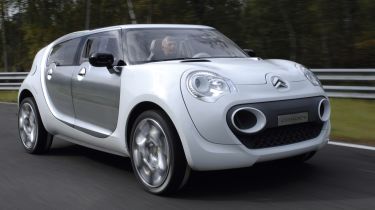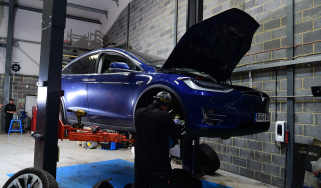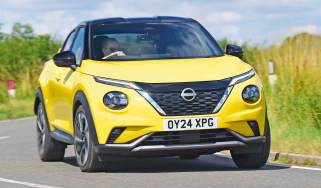Citroen C-Cactus
Citroen has gone back to its roots with the C-Cactus. We drive the spiritual successor to the 2CV
It’s green, looks sharp and sips fuel. No wonder Citroen called this car the Cactus. While everyone else has been scrambling to produce the ultimate eco-friendly hybrid to save the planet, Citroen has come up with a great engine, and taken the idea several steps further. It’s produced a car that’s full of innovations, capable of 97.4mpg and which offers the latest technology. And all for the price of a normal family hatch. Surely the firm is on to a winner?
Remember when cars were simple, uncomplicated things? It wasn’t so long ago that the average family motor would be fitted with the bare essentials, leaving the driver free to concentrate on getting from A to B rather than fine-tuning the sat-nav.
Well, thanks to Citroen and the new C-Cactus, those days could soon be back. With its stripped-out interior and near 100mpg engine, the bang- up-to-date machine made its debut at the recent Frankfurt Motor Show.
And it promises to be a breath of fresh air in a world full of cars so complicated you need a degree to understand them! In order to prove the point, the French firm invited Auto Express behind the wheel to find out exactly what is in store.
Designed by a team including Irishman Cathal Loughrane, the new C-Cactus provides a host of radical solutions to some of the challenges that are likely to face all vehicles during the coming years.
And the first is to answer this question: How do you make a green, fuel-efficient and low-cost car that provides value for money and still manages to look sharp?
“With the C-Cactus, we wanted to show that you don’t have to follow the same rules as everyone else, and that you can find different and environmentally friendly answers along with a fresh approach to car interiors,” said Loughrane.
“We basically questioned every-thing we did on the inside, which is why I decided we didn’t really need to have a dashboard. I must admit I was worried when I had to present my ideas and tell my bosses there was no interior – but they really went for it,” he added.
By ditching the traditional approach to cabin design, Citroen saved weight, parts and cost – and created a template for the rest of the car. As a result, its eco-credentials stretch in every direction. A significant proportion of the vehicle is made from recycled or recyclable materials. The windscreen, windows and tyres can all be used again in some form, as can the bare steel door panels. Citroen’s answer to go-faster stripes, these remain unpainted while giving the C-Cactus a far more individual look – and the good news is they don’t cost any extra!
On the road, there’s no doubt the newcomer turns heads – and for all the right reasons. Not only does the car look highly distinctive, but its lightweight design also means the 1.6-litre electric diesel hybrid engine offers genuine performance.
Silent at low speeds, when only the electric engines are running, the Citroen is refined. It’s quick off the line, too, thanks to the torque on offer from the four-cylinder diesel powerplant. The steering is direct, and there’s a great view of the road ahead. And with a glass roof and plenty of space available up front, the cabin feels light and airy.
And despite lacking so many traditional components, the C-Cactus still comes well equipped with air-conditioning, an eight-speaker stereo and a full complement of airbags. All sorts of other modern gadgets can also be included, such as cruise control, an MP3 port and a Bluetooth phone connection.
Citroen bosses admit that it will take until around 2010 to fine-tune the production process before they can put a car similar to the C-Cactus on sale. When it does arrive, it will replace the current C4. And with a price tag which is likely to be less than £11,000, there’s no doubt that interest in the dare-to-bare new-comer should be intense.
RIVAL: TOYOTA PRIUS
With its efficient hybrid engine, the Prius’s green credentials should be beyond question. Yet it doesn’t serve up the same sort of innovative solutions to save fuel as the C-Cactus, nor does it have such a clever exterior design. A new Prius model is due in 2008, although without the Citroen’s diesel engine it’s unlikely to match the C-Cactus’s fuel returns.







